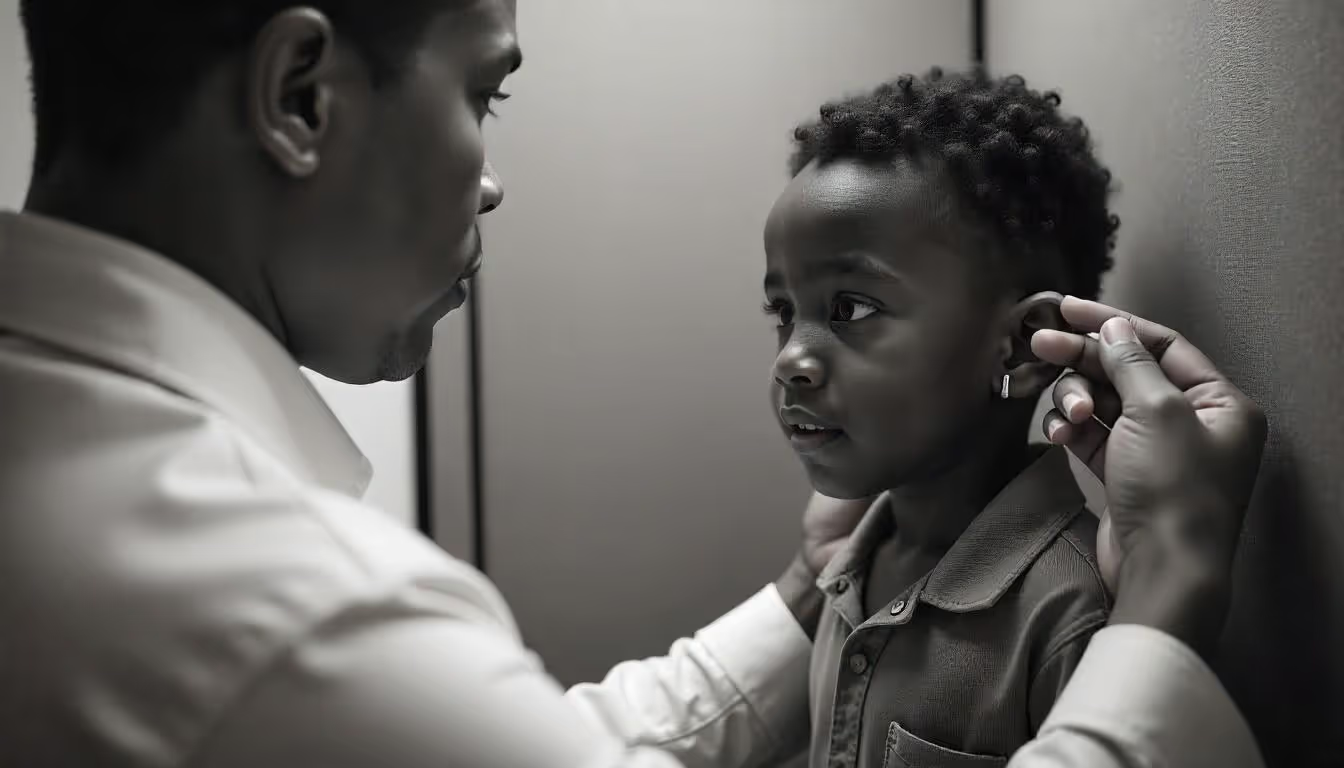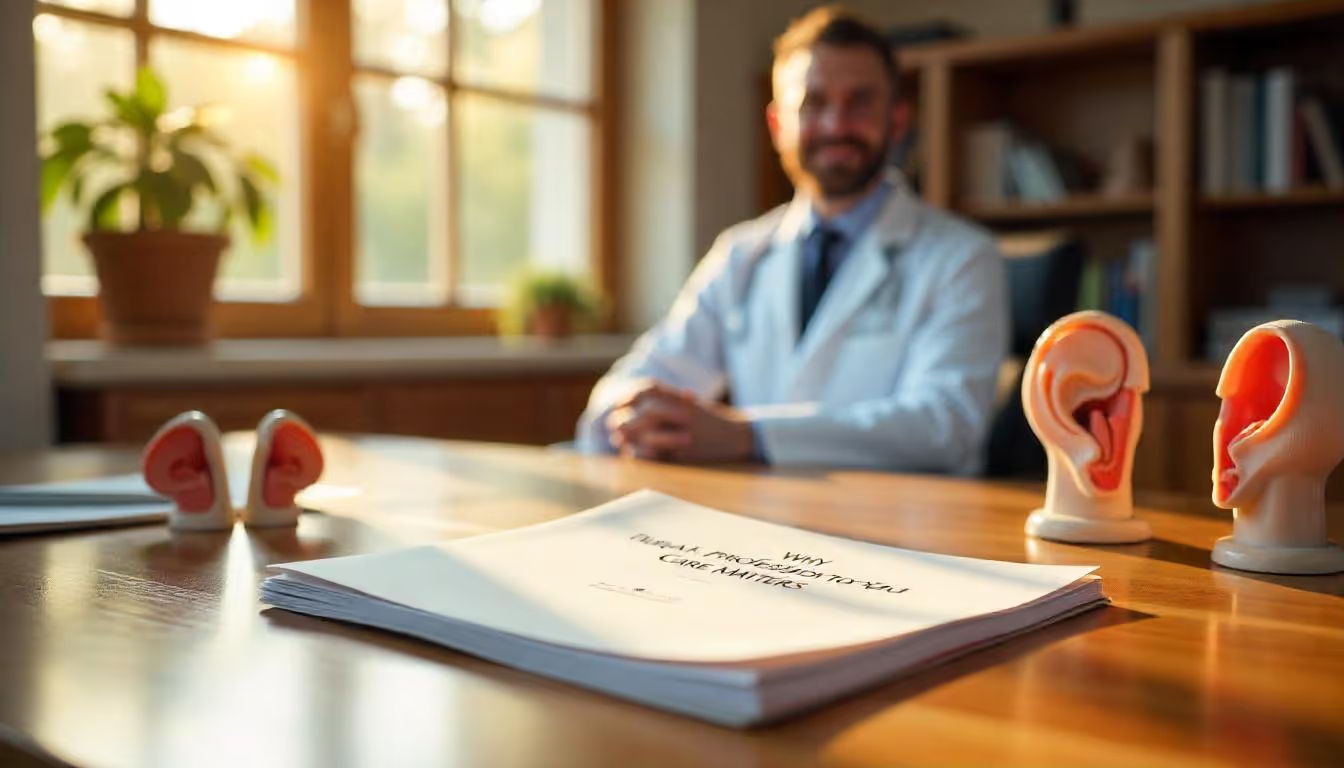
Hearing loss affects millions of people worldwide, impacting communication, quality of life, and overall wellbeing. Hearing aids are one of the most common solutions to improve hearing, but are hearing aids suitable for everyone? The short answer is no — but that doesn’t mean there isn’t a suitable solution for you. At Hazelwood Hearcare, we believe in educating our patients and tailoring hearing care to each individual's unique needs.
In this blog, we’ll explore who hearing aids are suitable for, who may need alternatives, how hearing aids work, and what factors influence their effectiveness.

Hearing aids are small electronic devices that amplify sounds to help individuals with hearing loss. They consist of a microphone, amplifier, speaker, and battery. These components work together to pick up sound from the environment, make it louder, and deliver it into the ear.
Modern digital hearing aids can be programmed to target specific frequencies and hearing needs. Some models are also equipped with features like noise reduction, Bluetooth connectivity, and directional microphones.
But despite their advanced technology, hearing aids are not a one-size-fits-all solution.

Hearing aids are most effective for people with:
At Hazelwood Hearcare, we conduct comprehensive hearing tests to determine the type and degree of hearing loss and whether hearing aids are the right solution.

There are several scenarios where hearing aids may not be effective or appropriate:
Conductive hearing loss occurs when sound can’t pass through the outer or middle ear effectively. This can be due to earwax buildup, fluid in the middle ear, or a perforated eardrum. In many cases, this type of hearing loss can be treated medically or surgically.
In these cases, a hearing aid may not be needed at all once the underlying problem is resolved.
Individuals with severe to profound hearing loss may find conventional hearing aids insufficient. For these cases, cochlear implants or bone-anchored hearing systems might be recommended instead.
Some people, especially the elderly or those with dementia, may struggle to use or maintain hearing aids effectively. Small device controls and frequent battery changes can pose challenges.
In these instances, hearing assistive technology or caregiver-supported solutions might be more appropriate.
Ongoing infections or chronic drainage in the ears can make it unsafe to use hearing aids, especially in-the-ear (ITE) styles. In such cases, a specialist may advise alternative treatment first before fitting hearing aids.

Even for people who are considered suitable candidates, hearing aids don’t always work the same for everyone. Success with hearing aids depends on several factors:
Mild to moderate hearing loss often responds well to amplification. Severe losses may require more powerful devices or additional hearing strategies.
The sooner hearing loss is addressed, the better the outcome. Early intervention helps your brain stay familiar with processing sounds, improving speech clarity over time.
A hearing aid must be tailored to your specific hearing profile, which is why professional fitting by a qualified audiologist is essential. Off-the-shelf devices or poorly programmed aids often lead to disappointment.
Adjusting to hearing aids takes time. It’s not an instant fix your brain needs time to re-learn how to process amplified sounds. At Hazelwood Hearcare, we support you every step of the way.

If hearing aids aren’t the right fit, don’t worry there are other options available:
We’ll work closely with you to find the right solution based on your needs and lifestyle.

Many people try over-the-counter hearing amplifiers or online devices without guidance. Unfortunately, these generic solutions often fail to deliver results because they don’t address your unique hearing profile.
At Hazelwood Hearcare, we take a personalized and professional approach:

If you’re a suitable candidate, hearing aids can dramatically improve your quality of life, including:
We offer a wide range of hearing aid options — from discreet invisible-in-canal (IIC) to powerful behind-the-ear (BTE) models — to match your preferences and budget.

No, hearing aids amplify sound but don’t "cure" hearing loss. They help you hear more clearly and comfortably but cannot restore natural hearing.
While online hearing aids are available, we strongly recommend a professional evaluation. Incorrectly fitted devices can do more harm than good.
Technology has evolved dramatically. If your old aids didn’t help, you may benefit from new options and a fresh fitting by a specialist.
Yes, but children need special pediatric hearing aids and support from a hearing healthcare professional.
At Hazelwood Hearcare, we’re committed to helping you hear better and live better. Whether you’re just starting to notice hearing changes or have been managing hearing loss for years, we’re here to guide you with expert advice and compassionate care.
👉 Book a free hearing test in Coventry, Leamington Spa, or Kenilworth today and discover if hearing aids are right for you.
While hearing aids aren't suitable for everyone, there is a hearing solution for almost every person experiencing hearing difficulties. With the right diagnosis, professional fitting, and ongoing care, most people can enjoy better hearing and a better life.
Hazelwood Hearcare is here to help you every step of the way. Reach out to us for a no-obligation consultation and begin your journey to clearer, more confident hearing.